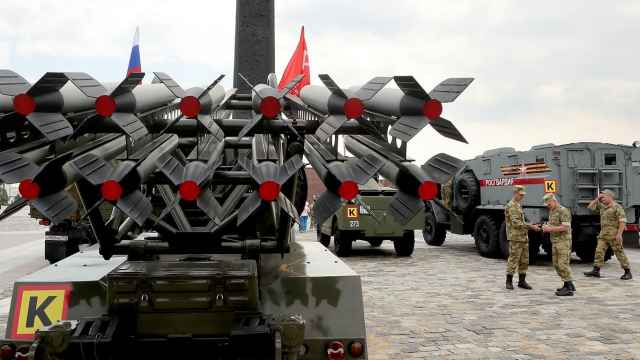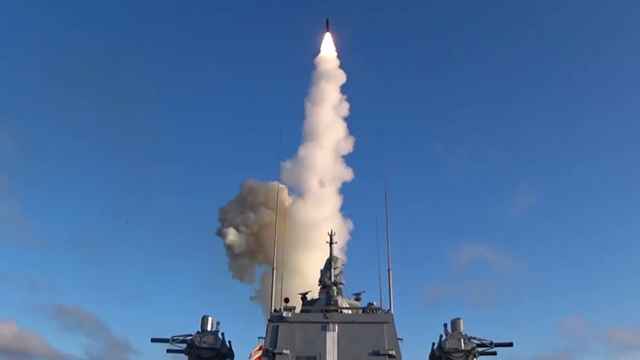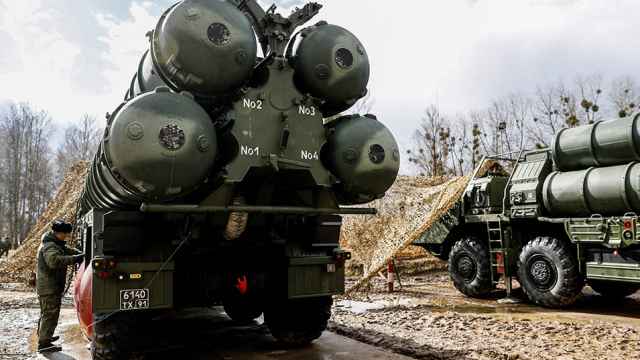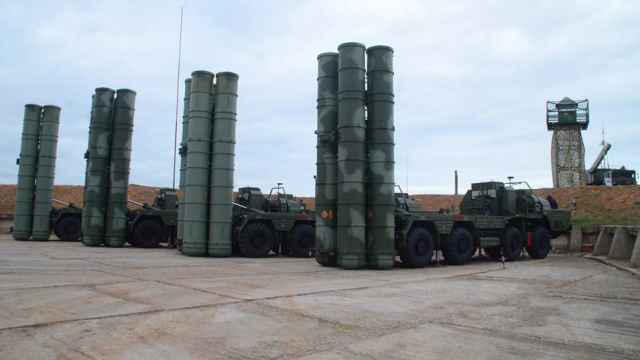A series of alleged Israeli strikes on Iran-linked targets in Syria, Lebanon and Iraq has sent shockwaves across the region and beyond in recent weeks. The attacks on Iraq in particular were unprecedented, with long-term effects that are yet to be revealed.
The immediate effect, however, has been that both the general public and the elites of Middle Eastern countries have raised the need to protect their skies more effectively.
Currently, air defense systems are hindered by more than just a lack of innovative equipment. They are overdependent on external powers, especially the United States.
Shortly after the strikes, it didn’t take long for Russia to move closer toward Iraq in terms of military-technical cooperation.
Iraqi media reported Aug. 27 that, in a meeting between Iraqi parliamentary speaker Mohammed al-Halbousi and Russian Ambassador to Iraq Maxim Maximov, the Russian diplomat said Moscow was ready to support Iraq’s initiative in the UN Security Council to expand the capability of Iraqi air defense structures.
The Russian proposal was all the more appealing given that the United States has essentially expressed its support for the recent strikes.
After one of the Israeli assaults in Syria, U.S. State Secretary Mike Pompeo discussed the strikes with Israeli Prime Minister Benjamin Netanyahu, expressing his “full support for these actions.” It is widely presumed in Iraq that the bombings of Iraqi army and Popular Mobilization Unit (PMU) positions were only possible following American approval.
While the government in Baghdad has avoided making rash public statements, it has sought recourse at the UN Security Council, courting Russian support for a measure to condemn the strikes. Prime Minister Adel Abdul Mahdi has already signed an Iraqi decree restricting access to Iraq's airspace “for all Iraqi and foreign parties.”
The attacks have renewed calls in Iraq for the immediate withdrawal of the U.S. military. The State of Law parliamentary coalition has claimed that the Americans arranged the opening of Iraqi airspace to facilitate the Israeli attacks. The coalition said that Iraq should “steer toward Russia and China in order to provide international protection [for Iraq].”
Following the damage to the PMU military facilities, PMU leader Falah al-Fayyad visited Moscow on Sept. 3 for a meeting with the head of Russia’s Security Council, Nikolai Patrushev, the presidential envoy for Syria, Alexander Lavrentiev, and Deputy Foreign Minister Sergey Vershinin. The parties discussed anti-terrorist cooperation, “ways to achieve regional stability and security” and stressed the need to “avoid foreign intervention” — a not-so-subtle reference to downgrading U.S. engagement in Iraq.
The actual reason for Fayyad's visit was probably connected to Iraq’s interest in expanding military-technical contacts with Russia and purchasing Russian air defense systems. Fayyad is a frequent guest in Moscow and has met various Russian officials, including Patrushev.
“The cooperation between the security councils and structures of [Russia and Iraq] indisputably serves their common interests,” Patrushev said after the talks.
Military-technical cooperation between Moscow and Baghdad is on the rise, as seen by the increasing Iraqi purchases of Russian aircraft and tanks. Relations expanded rapidly after 2014, when the implementation of previously signed contracts reinforced Iraq’s security system, facilitating the country’s struggle against Islamic State [a terrorist organization banned in Russia]. Back then, reports circulated about Baghdad’s interest in purchasing Russian S-400 missile systems. However, Iraqi government officials repeatedly denied these statements. Now, in light of the Israeli strikes, the question is taking on a new meaning in Iraq.
However, if Baghdad is serious about purchasing Russian air defense systems, several issues should be considered.
First and foremost, Iraq would have to pay an immense political cost, as Russian missiles are subject to U.S. sanctions. Any contract to purchase the S-400 or even S-300 (both systems are produced by the company Almaz-Antey) may expose Iraq to such sanctions. That said, the threat of sanctions did not prevent China, Turkey or India from buying the weapons.
Russia, in turn, may find that maintaining its “special relations” with Israel will be a challenge should it sell defense systems to Iraq.
Second, Iraq can be certain that Moscow will take any purchase request seriously, considering that Russia has sought to maintain stability in the country and in the region in general, while keeping its own interests there intact. These interests primarily concern Russia’s multibillion investments in Iraq’s oil and gas industry.
Last, even if an air defense supply contract is signed and implemented, the systems will be provided to the Iraqi army, not the PMU. Previously, deputy PMU head Abu Mahdi al-Muhandis had signed a decree — later annulled — to create a PMU air force. The Iraqi government will inevitably monitor this issue closely.
If Russia were to provide Iraq air defense systems, it would pose a political quandary that would require a careful consideration of whether the move fully meets Russian interests and whether it is safe for its relations with other regional actors.
This article was originally published by RIAC.
A Message from The Moscow Times:
Dear readers,
We are facing unprecedented challenges. Russia's Prosecutor General's Office has designated The Moscow Times as an "undesirable" organization, criminalizing our work and putting our staff at risk of prosecution. This follows our earlier unjust labeling as a "foreign agent."
These actions are direct attempts to silence independent journalism in Russia. The authorities claim our work "discredits the decisions of the Russian leadership." We see things differently: we strive to provide accurate, unbiased reporting on Russia.
We, the journalists of The Moscow Times, refuse to be silenced. But to continue our work, we need your help.
Your support, no matter how small, makes a world of difference. If you can, please support us monthly starting from just $2. It's quick to set up, and every contribution makes a significant impact.
By supporting The Moscow Times, you're defending open, independent journalism in the face of repression. Thank you for standing with us.
Remind me later.








